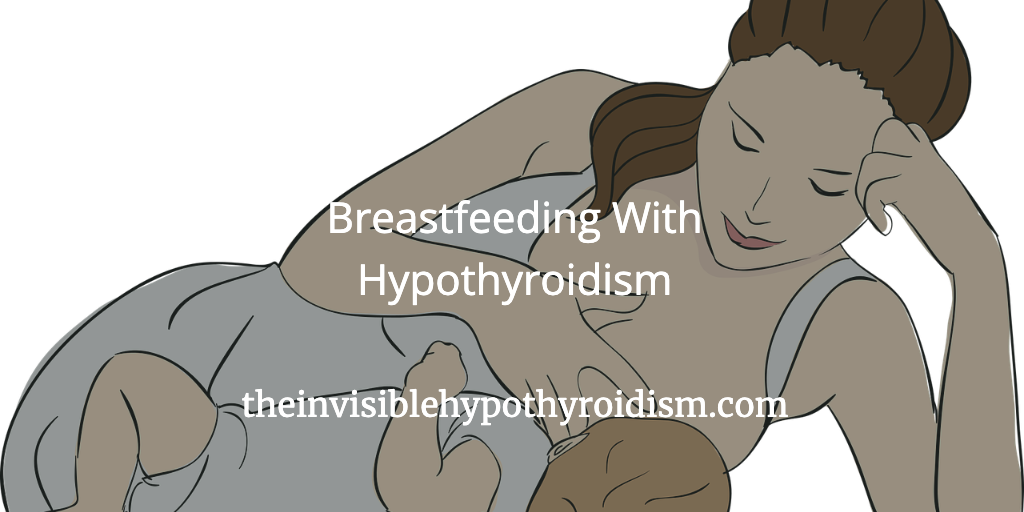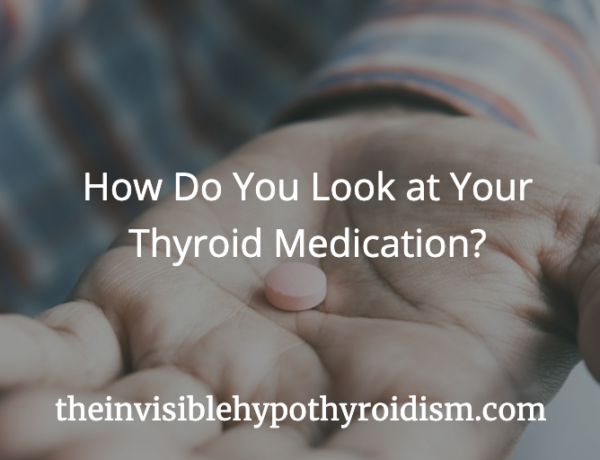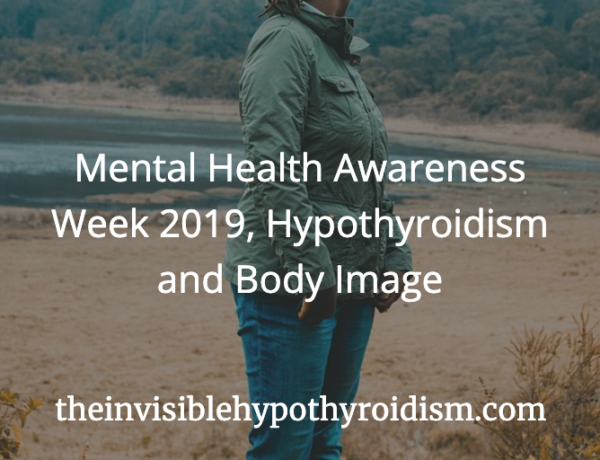Does hypothyroidism prevent us from being able to breastfeed?
Thankfully, most often not. However, it does come down to how well managed your thyroid condition is.
Let’s look at the most frequently asked questions!
Is It Safe for Someone With Thyroid Disease to Breastfeed?
I am often asked whether our thyroid medication for hypothyroidism (Levothyroxine, Armour Thyroid, Liothyronine etc.) is safe to take while breastfeeding and the answer is yes. In fact, it’s crucial for our health as well as milk production. Your medication is crucial in your body being able to produce enough milk.
Will My Thyroid Medication Pass to The Baby?
When you’re on the right amount of thyroid medication (i.e. not overmedicated) it only crosses into breast milk in minute amounts, and has no adverse effects on the child.
Overmedication / hyperthyroidism is something else, though. Taking more thyroid medication than your body needs can lead to it being passed on to baby in larger amounts, so keep on top of regular blood tests and keeping levels optimised. Being overtreated for your hypothyroidism isn’t a great idea and can also negatively affect milk supply.
Thyroid hormone levels swinging up and down may occur for a few months following delivery of your child, as your body and hormones settle.
How Can Hypothyroidism Affect Milk Supply?
The hormone prolactin is responsible for the production of breastmilk and is stimulated by TRH (thyrotropin-releasing hormone) which in turn stimulates the production of TSH.
If TRH is low (which is often seen in those with low thyroid hormone levels – untreated or undertreated hypothyroidism) prolactin may also be low which can lead to low breastmilk production.
Therefore, it is not uncommon for people with hypothyroidism to have issues with breastmilk production, but we can overcome and prevent it by maintaining optimal thyroid hormone levels throughout pregnancy and postpartum.
Having your TSH, Free T3 and Free T4 levels checked soon after birth and regularly thereafter and optimising them is therefore crucial for good milk supply.
Signs you may have a milk supply issue include:
- Your baby losing weight or gaining weight slower than is expected.
- A lack of wet and dirty nappies.
- Your baby fussing at the breast and still hungry after a long feed.
You should speak to your pediatrician, midwife, family doctor, or a breastfeeding and lactation consultant regarding any concerns around these.
To support you with breastfeeding, a breastfeeding and lactation consultant can be invaluable and check the baby’s latch, sucking strength, check for a tongue tie, and offer guidance with pumping and supplements to stimulate milk supply.
A book I have found invaluable on breastfeeding is The Positive Breastfeeding Book, which covers the many ways in which we can support our breastfeeding journey as best as possible, and talks about tongue ties, latch, pumping, supplements etc. for encouraging a well-fed baby.
See also, the la leche league information on thyroid disorders and breastfeeding.
Will Breastfeeding Affect My Thyroid Levels?
I am occasionally asked if breastfeeding will affect thyroid hormone levels and create a need for more thyroid hormone replacement medication. The answer is: it depends on your body.
There is anecdotal evidence to say that some people require an increase in thyroid medication when they start breastfeeding, but this is also taking place directly after pregnancy and birth.
Therefore, how can we be sure that it is the demand for breastmilk increasing the need for an increase in thyroid medication? Many find that they simply require a higher dosage of their thyroid medication after pregnancy anyway.
Conclusion
So yes, your thyroid hormone replacement medication is a crucial component of producing enough milk, as is the need for regular and comprehensive thyroid testing. It is not unusual to see milk supply issues in new parents with hypothyroidism, but this is often resolved with correct management of the thyroid condition and support from breastfeeding specialists.
Related Article: 9 Ways I Supported My Thyroid Health Postpartum
Let me know in the comments: what is your experience?
Don’t forget that The Positive Thyroid Pregnancy Book: Your Essential Guide to Navigating Fertility, Pregnancy & Postpartum Wellness With Hypothyroidism and Hashimoto’s also covers my two pregnancies with hypothyroidism and Hashimoto’s in a lot of detail, while also compiling ALL the info you need to know for the best start for you and your baby.








